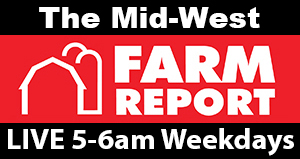
May is Mental Health Awareness month. It’s a time to raise awareness of those living with mental or behavioral health issues and to help reduce the stigma so many experience, especially in the agriculture industry.
Jes Beauchamp, dedicated counselor who handles the telecounseling and support groups for farmers to take advantage of through the Farm Center Farmer Wellness Program explains more about the resources available.
Beauchamp serves as the host for the support groups that are hosted once a month. She also provides on the farm counseling services in different areas of the state as needed.
“The voucher program can be used all around the state, is paid for by the Farm Center, and remains confidential,” says Beauchamp. “This along with our support groups provides a safe place for people to talk about the tribulations of being a farmer no matter what they may be, and helps to end the stigma of mental health being bad to talk about.”
There is also a 24/7 hotline available for anyone who is struggling and needs to talk. This is also confidential and you don’t have to have a mental illness or diagnosed illness to need to talk to someone.
“The utilization of these resources have increased over the last year or so and I think the stigma has been reducing as more people are becoming aware of their mental health and it’s not such a foreign concept,” explains Beauchamp. “People are getting more comfortable with talking about what is going on in their life.”
While many can leave work and sort of shut out that stress until the next day, that isn’t always the case in the agriculture industry. These individuals are working 365 days a year and many live on the farmstead. So they are continuously surrounded by the overwhelming stress that comes with the job.
Beauchamp adds, “More recently, we’re seeing farm owners utilizing the resources more. Many of those conversations are about a family member or farmhand that is struggling and they’re reaching out for ways to help.”
The other key factor that people are calling in is relationship and communication issues. This is not necessarily even between spouses, but parents and kids as well.
These trends also depend on the time of year, if they’re going through a farm succession, and if it is the busy season or more of that lull period where they have more time to recognize any problems.
Beauchamp explains, “Reaching out is tough and takes a lot of strength. However, you are not alone. You don’t always have to have the solution. That’s what we are here for.”
If you or someone you know is experiencing anxiety, chronic stress, or depression, have them reach out to the 24/7 Wisconsin Farmer Wellness Helpline at (888) 901-2558 or the Wisconsin Farm Center at (800) 942-2474. You can also find more information at farmcenter.wi.gov. If you or someone you know is experiencing suicidal thoughts, call the National Suicide Prevention Lifeline at 1 (800) 273-8255.

Leave a Reply